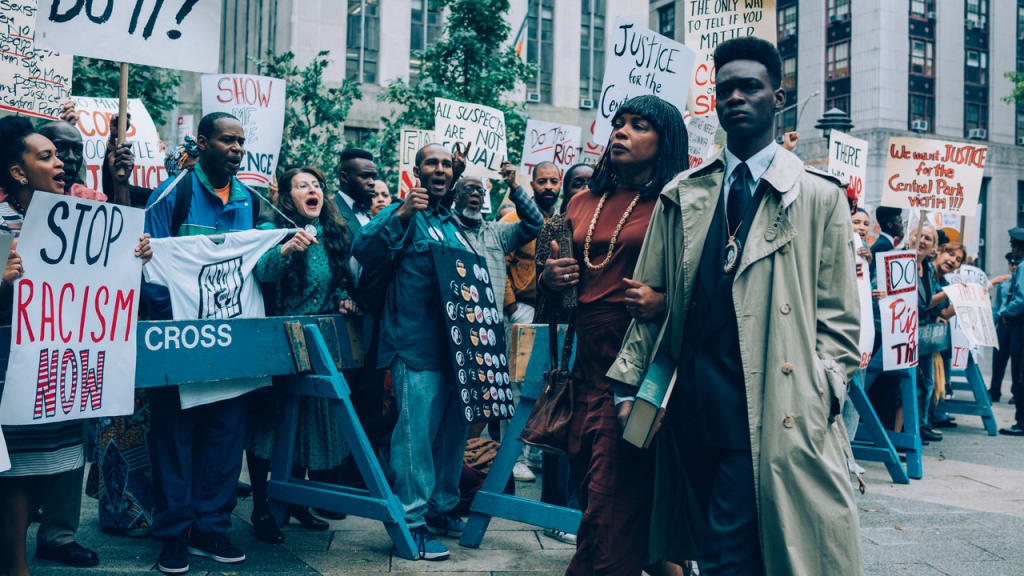Carrying Biracial Guilt Through the Lens of 'When They See Us'
But still, with a complicated background and questions of identity begging to be answered, I wondered why I couldn’t just enjoy the show.

Unless you’ve been living under a pop culture-deprived rock, you’ve probably either heard, watched, or cried along to Netflix’s latest drama miniseries, When They See Us. As the brainchild of Ava DuVernay (A Wrinkle in Time), Robin Swicord (The Curious Case of Benjamin Button), and, unsurprisingly, Oprah Winfrey, the series chronicles the truth behind the infamous Central Park jogger case in which five innocent black and Hispanic minors were wrongfully imprisoned for the rape and attempted murder of Trisha Meili.
The criminal case is a classic example of police brutality and racism that pitted the New York Police Department against minority youths and people of color during the late 1980s and early 1990s. Despite lacking any concrete evidence or DNA, detectives coerced the Central Park Five into making false confessions, ultimately putting each of them in prison for years.
As a young biracial woman (a mix of Chinese, German, Irish, and English), I found myself fostering a sizable amount of guilt throughout the viewing of each episode. I’m familiar with the feeling—an expression that the Internet has labeled as “white guilt” over the years—and I hate admitting that I experience it, as I’ve always found difficulty identifying with the European side of my heritage. I discovered a plethora of questions soaring through my mind as I made my way through the highly addictive series—why do I feel bad? Do I even have anything to feel bad about? Do my thoughts on this even matter? The prosecutors and detectives in the case were blatantly racist, making up the population of white people that do, indeed, dedicate their lives to manifesting hatred toward people of color, but that has nothing to do with me. My mom isn’t like that, nor are the members on her side, yet my dad and his side have experienced years of prejudice against them. But still, with a complicated background and questions of identity begging to be answered, I wondered why I couldn’t just enjoy the show.
Perhaps the clear answer requires years of soul-searching that I’ve yet to experience, but coming to the cruel terms that I’m vain enough to ponder these questions is a step in… some direction. At the end of the day, my biracial identity and guilt are far below anything remotely necessary to the viewing experience of the series. My individuality as an Asian-European woman is important in certain contexts, sure, but in analyzing When They See Us, it’s far more vital to acknowledge the hatred intended against the Central Park Five. It’s not about me. It’s not about who I am as a person or how my observation differs from the next person. It’s about acknowledging my privilege and feeling so deeply affected by the show that I pledge to fight for the rights of those less advantaged than I.
It’s completely possible that I missed the entire message of When They See Us. As a millennial, I admit, my generation tends to be a bit more self-centered then I’d prefer. Regardless, though, the series achieved one very common, unanimous goal: it made us think. Viewers were forced to take a harsh look at themselves, the world around them, and the actions (or lack thereof) they make. And in my book, that’s pretty much a win in itself.
Watch 'When They See Us' on Netflix and support the men of the Central Park Five by getting involved with the Innocence Project or shopping Raymond Santana's clothing line, Park Madison NYC.






Comments
There are no comments for this story
Be the first to respond and start the conversation.